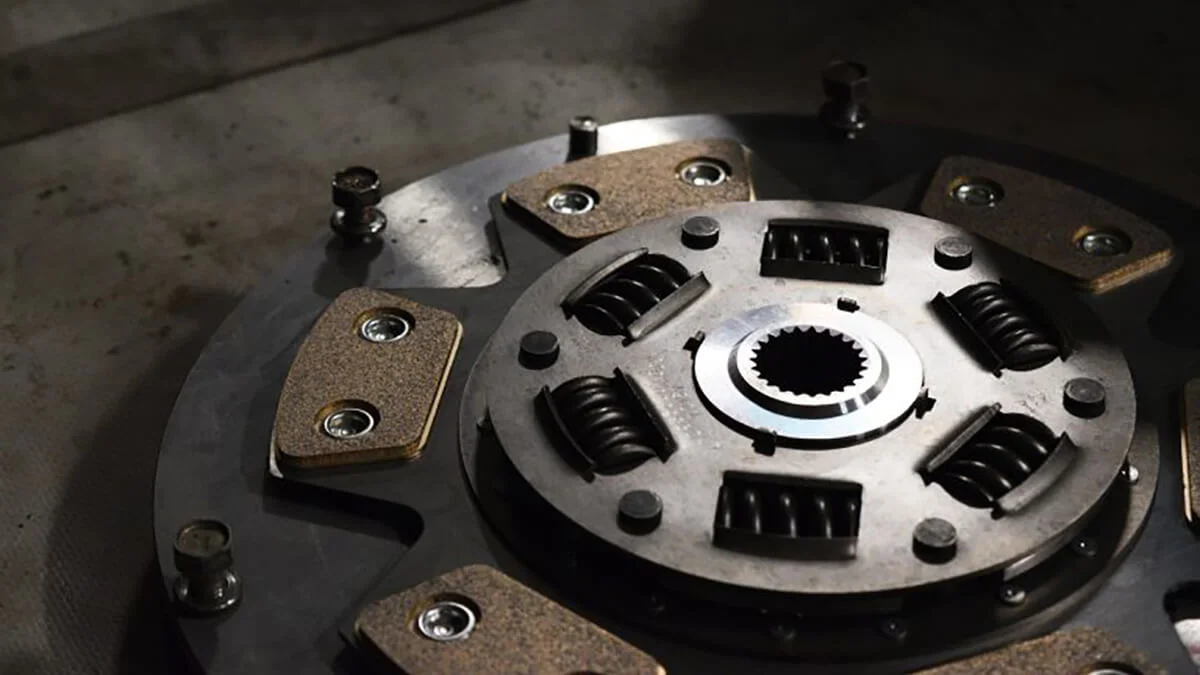Clutch Repairs

Clutch Repairs or Replacement at your local clutch garage: Along with brakes and shocks, your clutch is one of the most essential parts on your vehicle. It’s important to pay close attention to early signs of clutch issues as leaving it unchecked could cause major problems later. A clutch repair is likely to set you back a fair amount of money, which is why you should always use an accredited and qualified service centre. At Elite Garages, our clutch specialist technicians will advise you on any clutch repairs or clutch replacements required. We offer competitive prices and provide you with dealership quality service from the onset and throughout.
What does a clutch do?
A clutch is essentially two metal plates inside the engine. When you press down on the clutch pedal, the plates come apart separating the engine from the drive wheels allowing you to change gear. Releasing the pedal again re-engages the plates which then connect the engine to the drive wheels. As your car engine is constantly running, a clutch is necessary to separate the engine from the drive wheels when you stop the car. This is exactly what happens when you push down the clutch just before you stop otherwise the car would stall.
Signs I need a new clutch?
While a clutch is essential for driving your car, it’s not always easy to know when you need a new clutch or a clutch repair. Clutch symptoms come in different forms, from odd sounds and poor performance to mechanical problems. Depending on the type of vehicle and how it is driven, a clutch can last anywhere from 50,000 to 100,000 miles.
Here are some common signs that you may need a new clutch fitted:
- Clutch pedal making a noise when pressing or releasing it (or both)
- Changing gears is difficult
- A rattling or grinding sound when changing gears
- The clutch pedal vibrates when you accelerate
- Revving the engine while driving but your car barely increases in speed
- Engine revs randomly higher or lower
- The clutch seems to ‘slip’ causing a loss of acceleration, or a complete loss of drive
Problems may come from small components like bushes, pilot bearings, springs, screws or larger parts such as the clutch disc, flywheel, pressure plate, or release bearing. Often, you may even find problems in the drive train or the chassis itself. These are all signs that you either need a new clutch or good clutch repairs. The cost of a clutch replacement depends on the nature of the problem and the type of vehicle. Our expert clutch fitters at Elite Garages only use original parts that manufacturers recommend. They will let you know what is needed and how much it will cost before doing any work. Visit any of our centres for a free clutch check and clutch garage specialist advice if you think your clutch doesn’t feel right.
FAQs on Clutches
Click the + to read any answer or visit our most FAQ page to review the most frequently asked questions across all our Elite Locations.
If you click on a ‘Category’ or ‘Tag’ link, the page will ‘refresh’ and reload the page showing the top of the page first, you’ll then just need to scroll down to the FAQ section to see the results for the Category or Tag you selected.
It’s recommended to get a tyre safety check every month or before any long journeys. Regular checks help identify potential issues early, ensuring your tyres remain safe and roadworthy, especially in changing weather conditions.
A tyre safety check typically includes inspecting tread depth, checking tyre pressure, and examining the overall condition for signs of wear or damage. These checks ensure your tyres are safe, provide adequate grip, and support optimal fuel efficiency. Book your tyre safety check at Elite Garages here.
We never fit part worn tyres and always encourage customers to avoid fitting part worn tyres at all costs. There are many safety concerns and they really are not any cheaper than economy tyres in the long run. Here is a good article about why part-worns offer a false economy.
If the damaged area on the tyre is larger than 6 mm, and on the sidewall, you should not get a repair and rather opt for a replacement tyre.
This question is often also about the legal tread limit so we are always happy to explain that it is 1.6mm. We recommend changing your tyres at 3mm for optimal performance and safety but this is the customer’s choice. You can book a free tyre check to ensure your tread is above the legal limit.
No, as part-worn tyres are not safe and there is no guarantee they won’t fail.
We can usually repair punctures if they are on the central part of the tyre (the middle three-quarters). If a puncture occurs outside this area and near the tyre sidewall, a repair is unlikely and you should get it replaced.
The front tyres should last for approximately 20,000 miles while the rear tyres may last a little longer. When you replace your tyres also largely depends on driving style, frequency and the quality of tyres fitted.
In the UK and Europe, the legal tyre tread depth for cars is 1.6 mm around the tyre circumference and the central three quarters. However, most tyre experts recommend replacing your tyres when the tread depth is at 3 mm for better braking distances.


